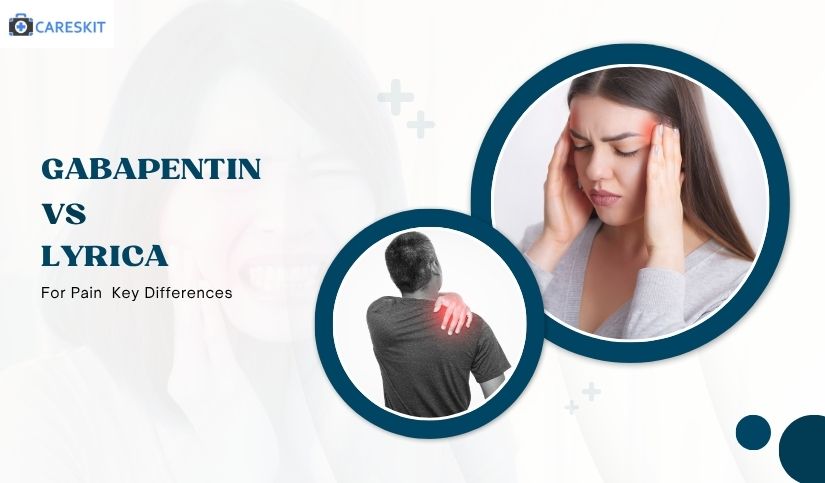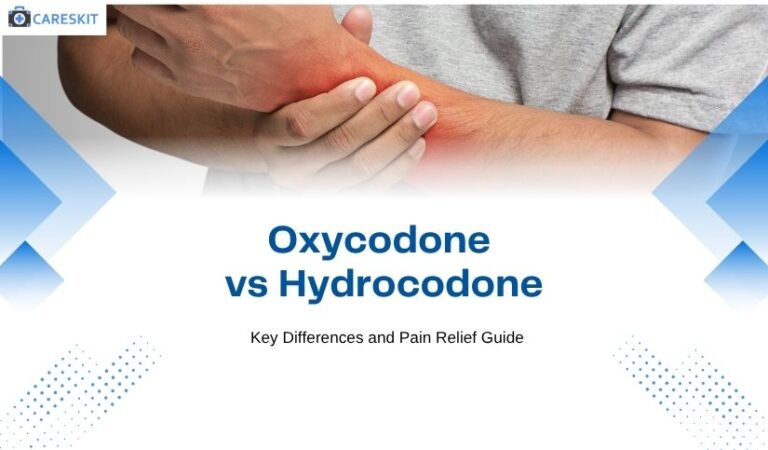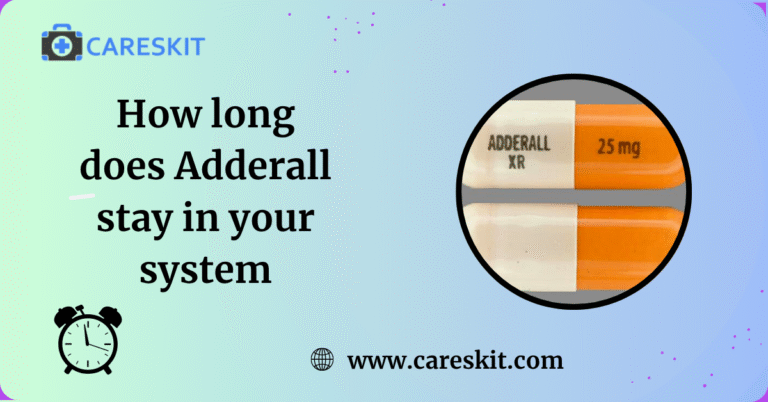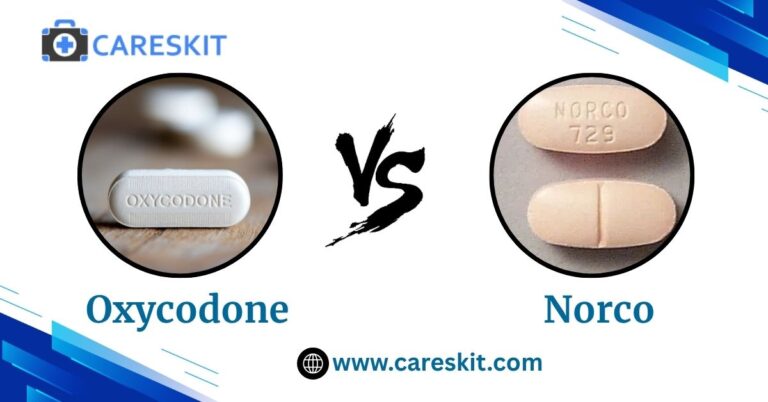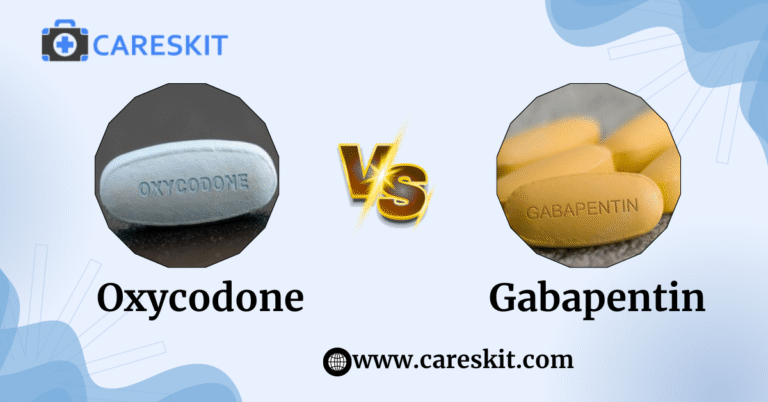Gabapentin vs Lyrica For Pain: Key Differences
If you are on the lookout for treatment options for nerve-related pain, epilepsy, or anxiety, you’ve likely come across two commonly prescribed medications: Gabapentin and Lyrica. Both are prescription medicines belonging to the anticonvulsant family. While comparable in several aspects, Gabapentin and Lyrica have primary differences that influence the way they’re administered, their effectiveness, and associated risks. Understanding the differences between Gabapentin vs Lyrica is thus very crucial when making any significant decisions about which is best for you.
In this article, we explore similarities and differences between Gabapentin and Lyrica. When it comes to comparing these drugs, there are some queries like is Lyrica and Gabapentin are the same thing, can you take Gabapentin and Lyrica together, and which is stronger, Gabapentin or Lyrica. If you still have questions after reading this blog, then consult your healthcare provider or visit Careskit online pharmacy.
Understands Gabapentin and Lyrica
Most healthcare professionals prescribed Gabapentin and Lyrica for nerve pain, back pain, seizures, and anxiety-related disorders. Although they are both chemically distinguishable, they belong to the same drug category known as gabapentinoids and have similar mechanisms of action by calming down overactive nerve signals in your brain.
What is Gabapentin?
Gabapentin is a medication you can get with a prescription, known by brand names like Neurontin and Gralise. Gabapentin was initially developed as an anticonvulsant medication and acts by affecting calcium channels in the brain and nerves to correspondingly affect abnormal electrical activity. Most healthcare professionals often prescribe it for nerve pain following shingles, epilepsy, and restless leg syndrome. People also use it for other issues like anxiety, nerve pain from diabetes, and fibromyalgia, even though that’s not its main purpose.
What is Lyrica (pregabalin)?
Lyrica is FDA-approved for the treatment of fibromyalgia, diabetic nerve pain, postherpetic neuralgia (pain after shingles), spinal cord injury-related nerve pain, and as an adjunct therapy for partial-onset seizures. In some countries, it’s also approved for generalized anxiety disorder (GAD). Lyrica is known for its fast-acting relief, predictable absorption, and higher potency compared to similar drugs like Gabapentin.
Medical Uses of Gabapentin and Lyrica
In terms of medical use, Gabapentin and Lyrica (Pregabalin) are primarily prescribed to treat pain-related nerve problems. Both drugs function well in assisting with neuropathic pain, which may be caused by diabetes or shingles. If you have diabetic neuropathy or postherpetic neuralgia, it offers optimal pain relief. Some of the uses are given below:
Gabapentin vs Lyrica for Back Pain:
Lyrica and Gabapentin are very useful drugs that are employed to treat chronic back pain, and they include nerve-related aspects like radiculopathy or sciatica. Both medications come under the gabapentinoid group, which are used to relax nerve impulses that lead to pain. Gabapentin is widely used for back pain off-label and provides gradual pain relief, whereas Lyrica is more widely used as a stronger and rapid-acting medication.
Gabapentin vs Lyrica for Nerve Pain:
Both Gabapentin and Lyrica are commonly used for neuropathic or nerve pain. Lyrica is mostly a stronger and quicker-acting drug for most nerve pain syndromes, such as diabetic neuropathy and postherpetic neuralgia, while Gabapentin is the better choice for nerve pain due to cost and less risk of side effects.
Gabapentin vs Lyrica for Fibromyalgia:
Both Lyrica and Gabapentin are often used to treat fibromyalgia, which is caused by musculoskeletal pain, fatigue, and sleep disturbances. Lyrica is an FDA-approved medication to treat fibromyalgia, and Gabapentin is used off-label for this condition.
What Is The Difference Between Gabapentin And Lyrica?
When comparing Gabapentin to Lyrica, there are some important points to consider, like how strong they are, how well they work for different issues, and what side effects they might cause. Both medications share similarities but also have distinct traits worth knowing about before making a choice.
Lyrica tends to be a more effective drug and has a quicker onset of action than gabapentin.
It is a controlled substance (Schedule V) because of its potency, whereas gabapentin is not federally regulated (although regulated in some states).
Lyrica requires a lower dose for effectiveness and has many side effects, such as dizziness and weight gain, but gabapentin is still heavily prescribed for neuropathy and fibromyalgia.
Gabapentin vs Lyrica Dosages For Pain
Lyrica and Gabapentin are both strong medications often prescribed by healthcare professionals for pain. The potency, absorption, and pharmacokinetics of both Lyrica and Gabapentin pills will often be different.
Lyrica (pregabalin) is to be taken orally twice a day. The extended-release pill is to be taken orally once a day. Always consult your healthcare provider before taking Lyrica, so that you can know the safety measures. These medications come in the following dosages:
- Dosage strengths: 25mg, 50mg, 75mg, 100mg, 150mg, 200mg, 225mg, 300mg
- Liquid Form: 20mg per milliliter
- Extended-Release Formulation: 82.5mg, 165mg, 330mg
Gabapentin is a high-dose medication, and it is usually taken 2-3 times per day. Although the extended-release form of this tablet is taken just once a day. These medications come in the following dosages:
- Dosage strengths: 100mg, 300mg, 400mg
- Liquid Form: 250mg per 5 milliliters
- Capsule: 100mg, 300mg, 400mg, 600mg, 800mg
- Extended-Release Formulations: 300mg, 600mg
Side Effects of Taking Gabapentin and Lyrica:
Comparing Gabapentin vs Lyrica taken at the same time may increase the risk of the central nervous system (CNS) because they work similarly and amplify each other’s effects. However, both medications cause several side effects that include
Common Side Effects:
- Severe drowsiness or sedation
- Dizziness and lightheadedness
- Blurred vision
- Fatigue and weakness
- Confusion or cognitive slowing
- Unsteady movements or loss of coordination (ataxia)
Serious Side Effects:
- Respiratory depression (slowed or difficult breathing)
- Increased risk of falls, especially in older adults
- Mood changes (such as anxiety, depression, or suicidal thoughts)
- Swelling in hands, legs, or feet
- Weight gain
Frequently Asked Questions (FAQ)
Can You Take Gabapentin and Lyrica Together?
No, you shouldn’t use Gabapentin and Lyrica together without any indication from your healthcare professional. Both drugs fall under the gabapentinoids category- both of them act very similarly by affecting calcium channels in the nervous system to decrease the excitability of nerves. If you are using both drugs together without your doctor’s authority, can may experience severe side effects such as drowsiness, dizziness, confusion, and coordination impairment.
Which Is Better Gabapentin or Lyrica?
Lyrica is more effective and faster-acting than gabapentin. It will be more effective for some conditions, such as fibromyalgia and diabetic neuropathy, and it usually takes lower doses to provide relief. Lyrica costs more, and it is a Schedule V controlled substance, indicating a greater potential for abuse and dependence.
Conclusion
Gabapentin (Neurontin) and Lyrica (pregabalin) are very similar medications used to treat conditions involving nerve pain, epilepsy, and some types of anxiety disorders. Choosing between them depends on the conditions to be treated, how the patient responds to treatment, side effects, and cost. Ultimately, the best option should be determined by a doctor, who can be sure what option is best for your needs.

